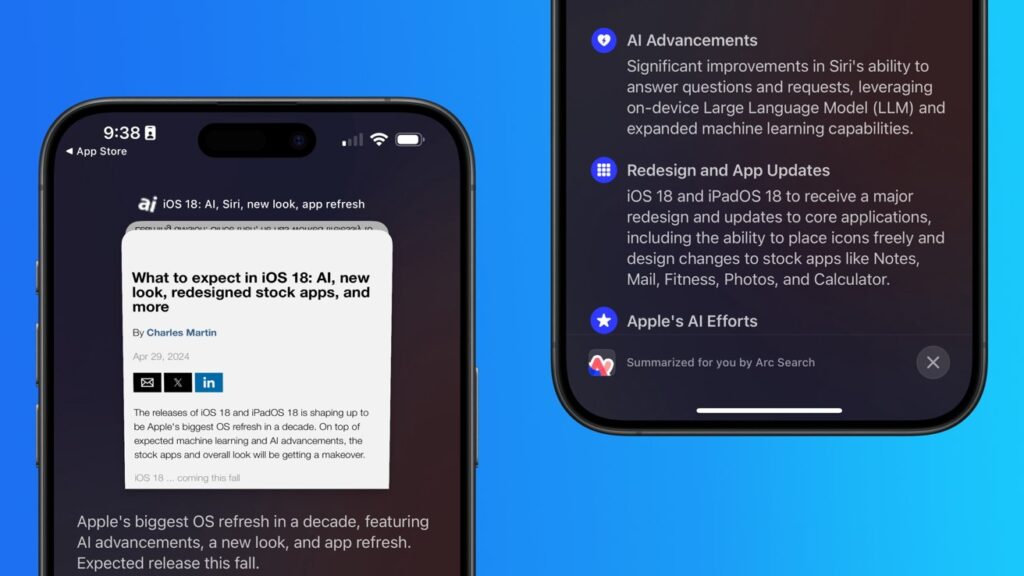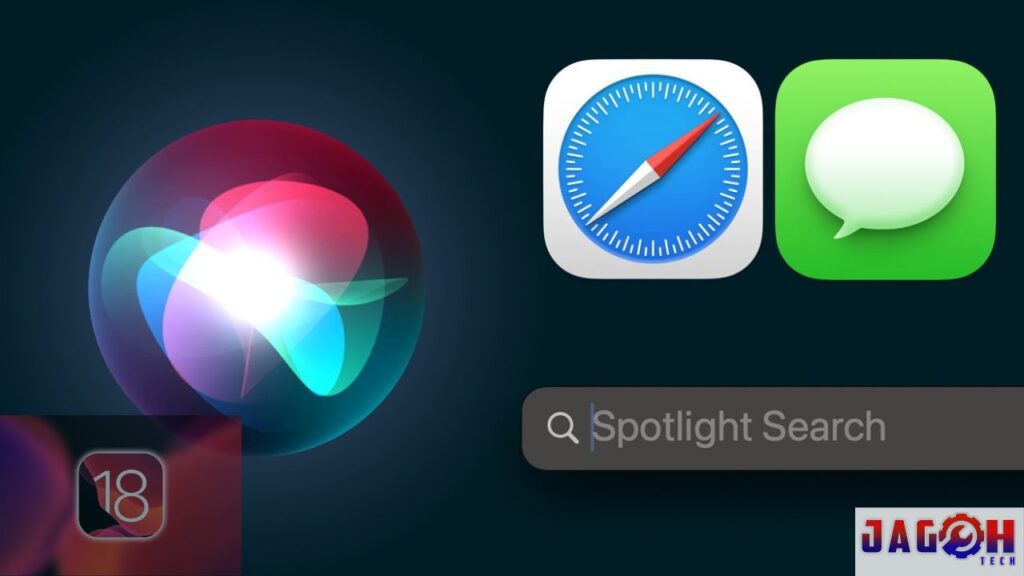Apple is gearing up to revolutionize its operating system with significant AI enhancements, particularly in Safari, Spotlight Search, and Siri. Insights gathered shed light on Apple’s Ajax Large Language Model (LLM) and the functionalities it brings to iOS 18.
Contents
Motivation Behind Apple’s Generative AI Integration


Apple’s decision to develop its generative AI technology stems from the increasing popularity of such software. With a focus on user privacy and practical utility, Apple aims to elevate its default applications’ performance across billions of devices worldwide.
AI-Powered Upgrades Across Apple’s System Apps
iOS 18 will witness a wave of AI-related improvements in key system applications like Siri, Spotlight Search, Messages, Mail, and Safari. These upgrades are aimed at delivering tangible benefits to users, ranging from text summarization to enhanced search capabilities.
AI-Powered Text Summarization for Safari and Siri
Safari 18 is poised to introduce article summarization through its Intelligent Search feature, enabling users to generate concise summaries of web pages. Similarly, Siri will integrate closely with Messages, offering simplified responses using Apple’s AI software.
On-Device Response Generation with Ajax LLM For IOS 18
Apple’s Ajax LLM demonstrates remarkable on-device response generation capabilities, a feature anticipated to debut at WWDC. Leveraging this technology, Apple aims to deliver instantaneous, contextually relevant responses without relying on cloud-based processing.
Text Analysis and Summarization for Safari and Messages


In its AI-related test applications and associated environments, Apple strongly emphasizes text analysis and summarization – all of which are handled by the company’s on-device LLM, Ajax.
Before testing can begin, Apple’s engineers first provide the LLM with the necessary text input. The software can receive text input through a dedicated text box, through digital documents, or it can use information from the Safari and Messages applications.
Upon receiving text input, Apple’s on-device AI selects keywords and phrases within a text, designating them as text topics. Sentences containing explanations, descriptions, definitions, or those which denote varieties of objects are also isolated from the remainder of the text.
In analyzing texts, the software takes into account all relevant information available. It can recognize and classify entities such as companies, people, and locations. For instance, if a name appears at the top of a text, the software will likely recognize the name as belonging to the text’s author.
The selected key sentences and topics ultimately provide a rudimentary text summary, which Apple’s on-device response generation software can use for a more coherent answer.
As the company’s text analysis software is capable of functioning entirely on-device, this could give Apple an advantage against the competition in the area of privacy protection.
Privacy-Centric Approach


Apple’s on-device AI software also appears to have a strong focus on preserving the privacy of its users, which would align with the company’s existing privacy-focused features – such as iCloud Private Relay.
Even in Apple’s test environments, user privacy warnings still exist. According to individuals familiar with the software, the company’s test utilities will display a message before the Ajax LLM uses any information from Safari or the Messages app.
By eliminating the need for cloud-based processing — at least in the most basic of situations — the chance for privacy-related issues is greatly reduced. If user data is not transmitted, the odds of it becoming compromised are obviously much lower.
Compared to existing implementations of AI in rival products and services, Apple’s implementation is arguably innovative in its attempt at privacy preservation and efficient on-device processing.
Comparison with Competitors
Apple’s AI advancements position Siri as a formidable competitor in the AI landscape, particularly against cloud-based solutions like Rabbit R1 and Humane AI Pin. With on-device processing and seamless integration with Apple’s ecosystem, Siri offers unparalleled privacy and functionality.
Future Outlook
As Apple continues to innovate in artificial intelligence, these advancements are poised to reshape user experiences across its ecosystem. Expect to see these features unveiled at the Worldwide Developers’ Conference, signaling Apple’s commitment to AI-driven innovation.
With iOS 18, Apple is on the cusp of a groundbreaking AI transformation, promising enhanced functionality, privacy, and user experiences across its system applications. As the tech giant continues to push the boundaries of AI, users can anticipate a seamless, privacy-centric future with their Apple devices.

